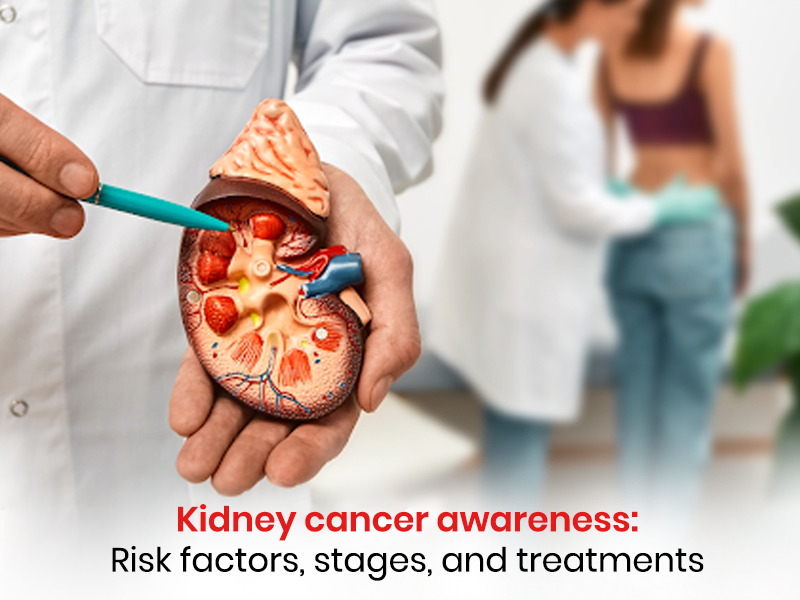Kidney cancer occurs when abnormal cells grow uncontrollably in one or both kidneys, leading to the formation of a tumor. As with any cancer, early detection and treatment play a crucial role in improving outcomes. Here, the doctors from a reputed dialysis centre in South Kolkata will discuss the risk factors, stages, and treatments associated with kidney cancer to raise awareness and promote proactive health management.
Risk Factors of Kidney Cancer
Several risk factors have been identified. Understanding these factors can help individuals assess their risk and take appropriate preventive measures. Top doctors from a dialysis centre in South Kolkata have stated them below.
- Age: Kidney cancer is most commonly diagnosed in individuals over the age of 40, with the risk increasing with age.
- Smoking: Tobacco use, including smoking cigarettes or cigars, significantly increases the chances of developing kidney cancer.
- Obesity: Being overweight or obese can result in the development of kidney cancer, as excess weight can lead to hormonal changes and inflammation.
- Family history: A family history of kidney cancer or certain hereditary conditions, such as hereditary papillary renal cell carcinoma, can enhance the risk.
Stages of Kidney Cancer:
Kidney cancer is categorized into four stages, which are determined by the size of the tumor and the extent of its spread.
- Stage 1: The tumor is confined to the kidney and measures up to 7 centimeters (cm) in diameter.
- Stage 2: The tumor has grown more than 7 cm but is still confined to the kidney.
- Stage 3: It has spread beyond the kidney to nearby lymph nodes or other tissues.
- Stage 4: The cancer has spread to the other parts of the body like the lungs, liver, or bones.
Treatments:
Doctors from a reputed private hospital in Thakurpukur may recommend the following treatments for kidney cancer.
- Surgery: It is the most common treatment for kidney cancer. It may involve removing part or all of the affected kidney, and in some cases, nearby lymph nodes or other tissues may also be removed.
- Radiation Therapy: This treatment uses high-energy X-rays or other radiation sources to kill cancer cells or shrink tumors. It is often used in combination with surgery to relieve symptoms in advanced cases.
- Targeted Therapy: Targeted drugs are designed to attack specific abnormalities within cancer cells, disrupting their growth and preventing the spread of the disease. These drugs may be used when the cancer has spread or when surgery is not an option.
- Immunotherapy: Immunotherapy helps stimulate the body’s immune system to recognize and destroy cancer cells. It is used when the cancer has spread and may provide long-term control of the disease.
On World Kidney Cancer Day, let us educate ourselves and others about the disease. By doing this, we can raise awareness for early detection, improve treatment outcomes, and support those affected by the condition.


